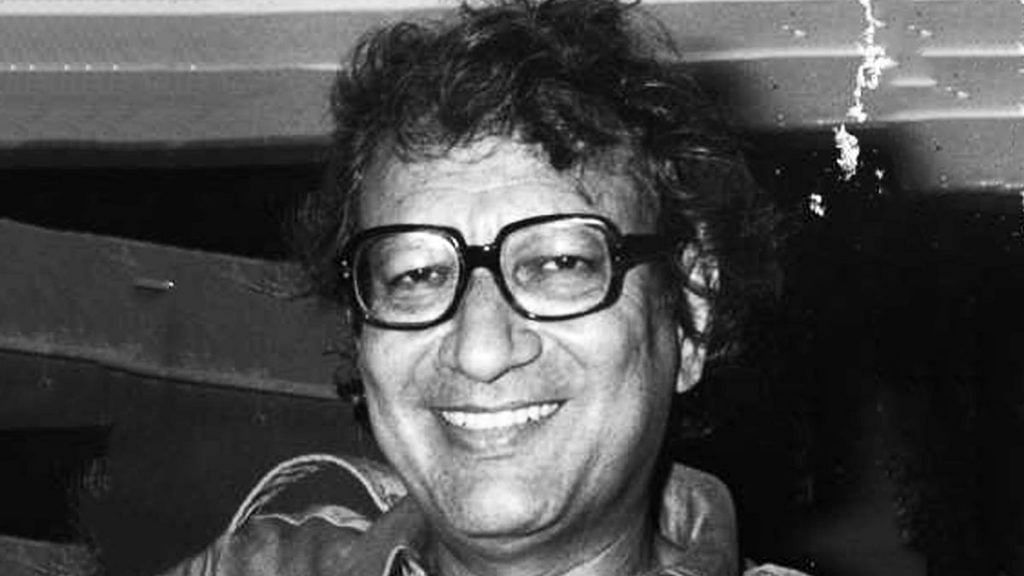Cinema is far more varied than poetry, music, drama, painting…it is more of architecture! But architecture is frozen… Film is a flowing architecture!” – Vijay Anand.
Close your eyes and imagine the film Guide. What do you think of? Dev Anand. Waheeda Rahman. The songs.
Less well-known is that the 1965 film was the making of Vijay — Dev Anand’s younger brother, who directed the film. In fact, Vijay’s career has been inextricably linked with that of Dev Anand and his other brother, Chetan Anand. He began his film career with Dev Anand and when he died in 2004, he was working on a project for his brother. Together, Dev Anand and Vijay Anand made 10 films as director and actor, respectively.
When Vijay passed away after a heart attack, an inconsolable Dev Anand referred to the film. He said in an interview to The Hindu, “He was my true guide. There is nothing left for us.”
The reference to Guide was deliberate.
Guide is considered Vijay’s finest work. The film, based on the novel by R.K. Narayan, The Guide (1958), was edited, directed and written by Vijay and starred Dev Anand and Waheeda Rehaman. It was a box office success and went on to win three Filmfare awards. Guide was also India’s official entry to Oscar’s in 1966.
The film is famously remembered for its music and much loved songs like Aaj Phir Jaane ki Tamnna Hai.
Filmmaker Madhur Bhandarkar said in an interview to The Hindu that he had seen the movie over 30 times.
Vijay went onto enjoy a prolific career in the industry, as director, writer and actor. His successful films include Kala Bazar (1959), Jewel Thief (1967), Johny Mera Naam (1970), Tere Mere Sapne (1971), and Chuppa Rustam (1973).
On his 85th birth anniversary, ThePrint takes a look at the life of Goldie, as Vijay was fondly called, who directed 17 movies, acted in 19 and wrote over a dozen movies, many under the family banner Navketan Films, established in 1949 by brothers Dev and Chetan Anand.
Also read: Lessons in stardom from Dev Anand
Anand’s Music
Vijay’s movies are remembered for their music, songs and well choreographed films as much as their star power. Remember Shammi Kapoor’s dance in Teesri Manzil‘s ‘O Haseena Zulfowali’, Vyjayanthimala in Jewel Thief’s ‘Honto Mein Aisi Baat‘ and Waheeda Rehman in Guide.
In an interview with Nasreen Munni Kabir he said, “I love songs. I never dreamt of making films without them.”
Vijay worked with many of Bollywood’s finest musicians, like lyricist Shailendra, and music directors S.D. Burman and R.D. Burman.
Early Life
Born in Gurdaspur in 1934, Vijay was the youngest of the three Anand brothers and a sister. His mother died when he was six years old.
His first script for Nau Do Gyarah in 1957 could not find a producer. Dev Anand heard the script, liked it, and though he was reluctant to let the novice direct the movie he later relented and Vijay’s career took off.
Filmmaking and acting skills
Vijay was a versatile director, making films across genres, but he his legacy is most widely felt on the noir thriller genre, particularly Jewel Thief and Johny Mera Naam. New-age filmmaker Sriram Raghavan, another noir proponent, has consistently paid homage to Vijay’s work though his films.
The most crucial aspect of his filmmaking, though, was his modern approach to characters in his films, like Tere Ghar Ke Saamne (1963) or Tere Mere Sapne.
Vijay tried his hand at acting as well. “(Acting) was part of the game. But I did get some good roles, Kora Kaagaz and Main Tulsi Tere Aangan Ki.”
When Doordarshan opened up in India, during the 1980s, Anand acted in the TV series produced by Chetan, Tehkikaat, in which he played a detective — Sam.
Adult films and CBFC stint
Vijay also served as chairman of the Central Board of Film Certification in 2002 but resigned within six months due to the ideological difference with the Atal Bihari Vajpayee government over the screening of adult rated films.
The then Information and Broadcasting Minister Sushma Swaraj and he disagreed on the screening of X rated films in theatres. At a press conference she said, “I am even ashamed of telling publicly what his proposals are.”
Vijay passed away on February 23, 2004 due to a heart attack while he was making another film for Dev Anand.
This article has been updated from its earlier version.
